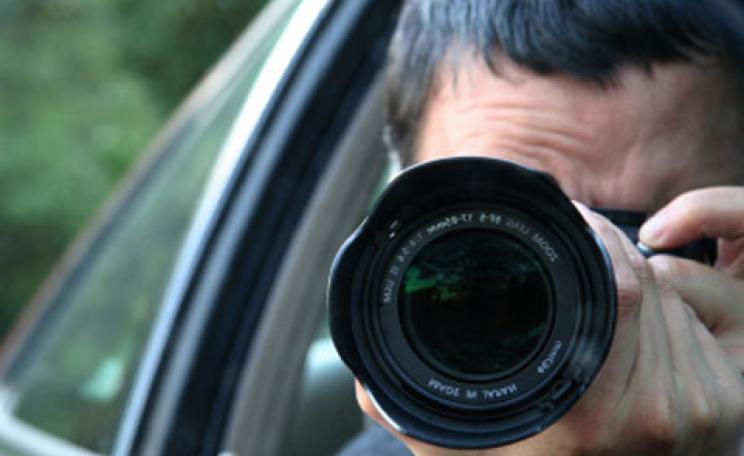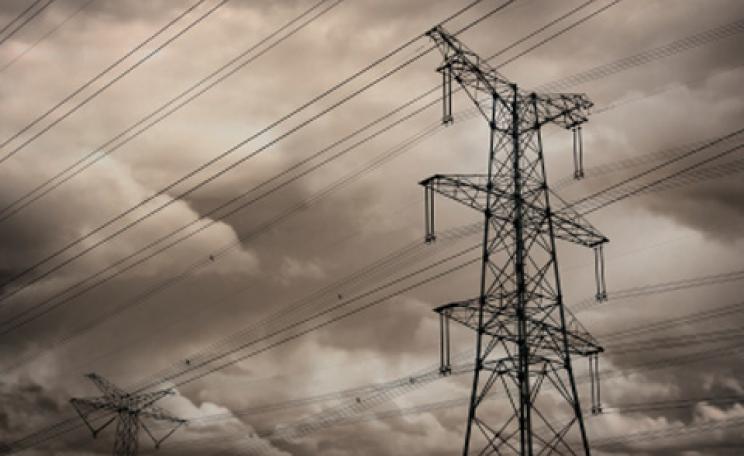Police tactics have been heavily criticised but protesters remain defiant
Environmental protesters are generally not seen as a particularly violent bunch, a nuisance and disruptive to those at the receiving end of direct action maybe, but not aggressive. Climate Camp, for example, has worked hard since starting out in 2005 to build a reputation of openness, honesty and strict non-violence in its campaigns. Despite this it has along with other peaceful campaign groups been subjected to an increasingly wide array of police tactics aimed at intimidating those involved.
The kettling of the Climate Camp during the 2009 G20 protests, for example, has been condemned by lawyers and many of the arrests classified as ‘unlawful’. Repeatedly, reports during the course of the day had described the Climate Camp as an undeniably peaceful affair. But at about 7:30 that evening, the demonstration was forcibly contained with no access to sanitation for a solid six hours.
The previous year the Climate Camp had set-up at Kingsnorth power-station in Kent in protest of the planned expansion of the plant by energy company E.ON. The policing tactics were so bad they were even criticised by the police themselves as ‘disproportionate and counterproductive’ with protesters subjected to an unprecedented number of stop-and-searches, confiscations, violence, and harassment. Freedom of Information requests later revealed items confiscated by officers included balloons, tents, cycle helmets, soap and party poppers. Kent police were also forced to pay compensation to three people, including two 11-year-old twins for unlawfully searching them.
More recently, the pre-emptive arrest of over 100 people at a school in Nottingham for allegedly plotting to shut-down Ratcliffe-on-Soar power station in 2009 sparked a debate about the proportionality of such a tactic. Only 26 of those arrested were ever charged, and 20 of those were convicted. The trial of some collapsed after it emerged the Metropolitan police had been employing a number of police officers to infiltrate environmental groups. One of the undercover officers, Mark ‘Stone’ Kennedy, claimed he knew of 15 other undercover police officers operating in protest groups during the last decade.
Scared or motivated?
Climate activist Dan Glass was one of the 20 protesters convicted of conspiracy to commit aggravated trespass at Rattcliffe-on-Soar power station. He reckons most activists are used to these kinds of police tactics but admits campaign groups need to build ‘psychological support’ mechanisms to help protesters confronted by violence or intimidation.
Two other experienced environmental protesters echo Dan’s thoughts about continuing despite the challenges. When asked about the issue of police infiltration, Andy, who has been involved with Reclaim the Streets, says ‘you always know they are there…the unpleasant side is how far you’ve been fooled’. The second activist, who wished to remain anonymous, had similar sentiments; ‘to a certain extent we’ve always known about these tactics’, and even before the news about Mark Kennedy, ‘members of the movement, including me, have had experiences where we’ve gone to protests, and police you’ve never seen before have known who you are’, he says.
‘You’ve got to take it on the chin...we can come out the other end,’ he added. This view was shared by Howard from Plane Stupid, who told the Ecologist, 'we've been aware of these tactics for a long time. It's a minor inconvenience when compared with the impacts of climate change. It is far more important to reduce emissions from aviation than it is to worry about what the police are up to'.
Family activists
Persistence spreads far, and Dina Baird, whose family featured in the Ecologist’s ‘Activist Families’, shares the opinion of the less moderate voices. ‘It’s an appalling situation but not altogether surprising’, she told the Ecologist. But, as a mother Dina is forced to put safety first, ‘I just choose what I involve [my children] in really carefully’. She says she would never put her children in a situation of police brutality ‘just to witness that would be distressing’. But infiltration has not deterred her remotely; ‘I don't plan to change the nature or depth of my involvement in activism as a consequence of the recent revelations’. In fact, she frames her refusal to back-down in the face of such aggression as part of her children’s up-bringing ‘we're supposed to teach our children to stand up to bullies so I wouldn't be a very good role model to my three if I allowed the police to dictate my behaviour’.
Campaign Against Climate Change told the Ecologist that although people have been deterred from the environmental movement, it’s not due to police tactics. ‘Environmental direct action has always been met with not-particularly-friendly policing’, and in that sense ‘there has not been much of a marked change’. For them any decline in activity is due largely to the disappointment from Copenhagen and due to declines in voluntary support and funding.
Jake Northwood, a climate protester who currently does not partake in direct action, shares the defiance of the more experienced. These kinds of tactics 'would be an extra concern', but he says, 'violence wouldn’t stop me from taking a stand for what I believe in.’
Action kitchens and street medics
Evidence seems to suggest this defiant attitude goes beyond words, and that protest groups, though not necessarily environmental, are continually developing support mechanisms to counter-act these kinds of tactics. The newly-formed Green and Black Cross is a grassroots network established with the sole aim of providing support for protesters. As of yet, it aims to provide support and aid in three primary areas: legal support during and after protests or in the event of arrest, street medics and so-called ‘Action Kitchens’.
‘Action Kitchens’ are being developed with an aim ‘to provide sustaining meals and/or snacks to people taking part in demonstrations, protests and direct actions’. Although not a new idea, it is likely to become an increasingly valuable form of support to environmental protesters – and protesters in general – as the expectation of being ‘kettled’ by police has normalised.
In a similar vein, the provision of street medics is for those hoping to learn first aid skills relevant to protest and direct action situations. Although this could cover any number of situations, it is likely to be most useful to those who have sustained injuries from police batons and shields.
Useful links
Green and Black Cross
Climate Camp for Action
Campaign Against Climate Change
| READ MORE... | |
 |
NEWS Climate activist trial collapses over use of undercover police officer The second trial of activists accused of planning to occupy Ratcliffe-on-Soar power station has collapsed after the use of undercover police officer Mark Kennedy was revealed |
 |
NEWS ANALYSIS Climate Camp: saviour of the environmental movement? Hostile police tactics at the Kingsnorth and G20 camps has not put protesters off as climate camp goes global |
 |
COMMENT Undercover police scandal: why we urgently need a judge-led inquiry With daily revelations about police spying on activists, we need an independent judicial investigation into the scale and nature of infiltration and use of agents provocateurs, says Ratcliffe defendant Dan Glass |
 |
COMMENT Emily Apple: 'I can't forgive Mark Kennedy's betrayal of activists' The undercover policeman's apology does not repair the lives he has wrecked or help the people he has grassed up |
 |
HOW TO MAKE A DIFFERENCE The Ecologist guide to video activism The video camera is the weapon of choice for activists and campaigners around the world, with campaign films an effective way to get a message across and fight back against mainstream media bias. Here's our guide to taking your stand... |







